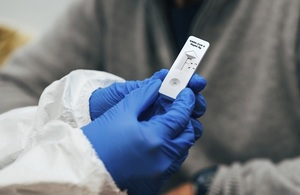Marking the tenth anniversary of the Syrian conflict
Thank you, Madam President. And I’d like to start by thanking Special Envoy Pedersen and Monsieur Bernard Duhaime for their briefings.
Ten years ago, Syrians took to the streets to peacefully call for an end to regime oppression, torture and corruption. Assad and his regime answered those calls with brutal violence, chemical weapons, and starvation.
The latest Commission of Inquiry report highlights the horrific scale of atrocities, and the tragic suffering of Syrian people in the past decade. Over half a million Syrians have lost their lives. Tens of thousands more have been forcibly detained, tortured or ‘disappeared’. Over 12 million refugees cannot return home without fear of further violence or arbitrary arrest and torture. As we’ve heard from the Special Envoy and the Secretary-General, this is a living nightmare.
This grim ten-year milestone is a reminder that we, the United Kingdom and the wider international community, should do all in our power to strengthen accountability for the perpetrators of the most serious crimes in Syria.
We continue to support the Syrian people and international efforts to assist victims of human rights abuses and violations and are pleased to be finalising an agreement with the IIIM to support this.
The UK’s autonomous Syria sanctions regime has designated over 350 individuals and entities responsible for repressing civilians in Syria, or enabling the Assad regime to keep doing so. Today the UK has announced further sanctions against six individuals that fall into this category. These sanctions send a clear message to the Assad regime and its backers: we will not stand by while you continue to commit heinous crimes against the Syrian people.
Meaningful progress on detainees and missing persons is a central element of Security Council resolution 2254 which could build confidence towards a political process. As a starting point, the Syrian authorities should provide comprehensive lists of the names of all detainees, clarifying the whereabouts of people who have never emerged from arbitrary detention. The UK continues to support the International Commission on Missing Persons’ work with Syrian families of the missing to secure their rights to justice, truth and reparations, as well as ICMP’s critical work to build an impartial database of all those who have gone missing, regardless of their origin, role in the conflict, or the circumstances of their disappearance.
The UK reiterates its unwavering support to Mr Pedersen and calls once again on the regime and its backers to engage seriously with the political process outlined in resolution 2254.
Though the situation is desperate, the people of Syria have shown incredible resilience and hope, for the future lies with them. The UK stands with the Syrian people to deliver all the steps enshrined in resolution 2254: a nationwide ceasefire; unhindered aid access; the release of those arbitrarily detained; conditions for safe refugee return; and free and fair elections pursuant to a new constitution – all of which represent the only way out of this conflict. Like you, Madam President, we hope that the eleventh anniversary of this conflict will not pass the same way as the tenth.
Thank you, Madam President.
